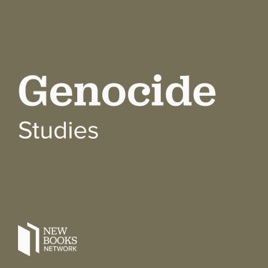
Advertise on podcast: New Books in Genocide Studies
Rating
4.3 from
Country
This podcast has
491 episodes
Language
Publisher
Explicit
No
Date created
2013/03/06
Average duration
80 min.
Release period
5 days
Description
Interviews with Scholars of Genocide about their New Books Support our show by becoming a premium member! https://newbooksnetwork.supportingcast.fm/genocide-studies
Podcast episodes
Check latest episodes from New Books in Genocide Studies podcast
Ivo Goldstein and Slavko Goldstein, "The Holocaust in Croatia" (U Pittsburgh Press, 2016)
2024/02/25
The Holocaust in Croatia (U Pittsburgh Press, 2016) recounts the history of the Croatian Jewish community during the Second World War, with a focus on the city of Zagreb. Ivo and Slavko Goldstein have grounded their study on extensive research in recently opened archives, additionally aided by the memories of survivors to supplement and enrich the interpretation of documents. The authors' accessible narrative, here available in English for the first time, has been praised for its objectivity (including rare humane acts by those who helped to save Jews) and is complemented by a large bibliography offering an outstanding referential source to archival materials. As such, The Holocaust in Croatia stands as the definitive account of the Jews in Croatia, up to and including the criminal acts perpetrated by the pro-Nazi Ustasha regime, adding significantly to our knowledge of the Holocaust.
Published in association with the United States Holocaust Memorial Museum.
Learn more about your ad choices. Visit megaphone.fm/adchoices
Support our show by becoming a premium member! https://newbooksnetwork.supportingcast.fm/genocide-studies
more
Bojan Aleksov, "Jewish Refugees in the Balkans, 1933-1945" (Brill, 2023)
2024/02/24
The Balkans provided the escape route for tens of thousands of German Jews, and remained a place of refuge until the Nazis brutally shut it off with the mass murder of Jewish refugees on the so-called Kladovo transport starting in September 1941, which can be considered as the beginning of the Holocaust in Europe.
Responding to publications about the Western European and American exile experience of the Jews after 1933, Bojan Aleksov's book Jewish Refugees in the Balkans, 1933-1945 (Brill, 2023) offers comparative insights into the less trodden paths of the persecuted, illuminating the cultural and political context of the Balkan host countries, the response of local Jewish communities, and the reactions of common people and assorted criminals. The Balkans, often marginalized and loathed, emerges in hundreds of personal accounts of survivors gathered here, supplemented by extensive archival research, as a welcoming getaway, where thousands survived thanks to the Italian occupiers, illiterate peasants, and Communist-led Partisan resisters.
Learn more about your ad choices. Visit megaphone.fm/adchoices
Support our show by becoming a premium member! https://newbooksnetwork.supportingcast.fm/genocide-studies
more
Devin O. Pendas, "Democracy, Nazi Trials and Transitional Justice in Germany, 1945–1950" (Cambridge UP, 2020)
2024/02/23
In his new book, Democracy, Nazi Trials, and Transitional Justice in Germany, 1945-1950 (Cambridge University Press, 2020), Dr. Devin O. Pendas examines how German courts conducted Nazi trials in the immediate postwar context. His work combines close readings of legal discourses in conjunction with very human stories to present a narrative of both irony and tragedy. In a masterful comparison of all four occupation zones, this book successfully musters historical data to challenge and overturn standard conceptualizations of “transitional justice.” It thus belongs definitively in the repertoire of legal scholars, political scientists, historians, and international relations theorists.
Eric Grube is a PhD candidate in the Department of History at Boston College. He studies modern German and Austrian history, with a special interest in right-wing paramilitary organizations across interwar Bavaria and Austria."Casualties of War? Refining the Civilian-Military Dichotomy in World War I", Madison Historical Review, 2019. "Racist Limitations on Violence: The Nazi Occupation of Denmark", Essays in History, 2017.
Learn more about your ad choices. Visit megaphone.fm/adchoices
Support our show by becoming a premium member! https://newbooksnetwork.supportingcast.fm/genocide-studies
more
Mara Josi, "Rome, 16 October 1943: History, Memory, Literature" (Legenda, 2023)
2024/02/20
Today I talked to Mara Josi about her new book Rome, 16 October 1943: History, Memory, Literature (Legenda, 2023).
Rome. Saturday 16 October 1943. This is where and when the largest single round-up and deportation of Jews from Italy happened. 1259 people were arrested by the German occupiers and gathered in a temporary detention centre for two days. They were eventually deported to Auschwitz-Birkenau from a local railway station, Stazione Tiburtina.
From December 1944, literary texts of this event have facili-tated a national and international understanding and recollection of 16 October 1943. They have been bearers of historical awareness, channels of memory; not only outcomes of remembrance but also active ingredients in the process of forging cultural memory.
In this pioneering interdisciplinary study drawing from literary and cultural memory studies, Mara Josi shows how 16 ottobre 1943 by Giacomo Debenedetti, La Storia by Elsa Morante, La parola ebreo by Rosetta Loy, and Portico d'Ottavia 13 by Anna Foa have operated on the personal and the collective level: in other words, on the reader and on society.
Mara Josi obtained her PhD at the University of Cambridge. Before joining the University of Ghent as an FWO Post-doctoral Fellow, she was an IRC Postdoctoral Fellow at University College Dublin and a lecturer at the University of Manchester.
Learn more about your ad choices. Visit megaphone.fm/adchoices
Support our show by becoming a premium member! https://newbooksnetwork.supportingcast.fm/genocide-studies
more
George Eisen, "A Summer of Mass Murder: 1941 Rehearsal for the Hungarian Holocaust" (Purdue UP, 2022)
2024/02/10
Most accounts of the Holocaust focus on trainloads of prisoners speeding toward Auschwitz, with its chimneys belching smoke and flames, in the summer of 1944. This book provides a hitherto untold chapter of the Holocaust by exploring a prequel to the gas chambers: the face-to-face mass murder of Jews in Galicia by bullets.
The summer of 1941 ushered in a chain of events that had no precedent in the rapidly unfolding history of World War II and the Holocaust. In six weeks, more than twenty thousand Hungarian Jews were forcefully deported to Galicia and summarily executed. In exploring the fate of these Hungarian Jews and their local coreligionists, A Summer of Mass Murder: 1941 Rehearsal for the Hungarian Holocaust (Purdue UP, 2022) transcends conventional history by introducing a multitude of layers of politics, culture, and, above all, psychology--for both the victims and the executioners.
The narrative presents an uncharted territory in Holocaust scholarship with extensive archival research, interviews, and corresponding literature across countries and languages, incorporating many previously unexplored documents and testimonies. Eisen reflects upon the voices of the victims, the images of the perpetrators, whose motivation for murder remains inexplicable. In addition, the author incorporates the long-forgotten testimonies of bystander contemporaries, who unwittingly became part of the unfolding nightmare and recorded the horror in simple words.
This book also serves as a personal journey of discovery. Among the twenty thousand people killed was the tale of two brothers, the author's uncles. In retracing their final fate and how they were swept up in the looming genocide, A Summer of Mass Murder also gives voice to their story.
Learn more about your ad choices. Visit megaphone.fm/adchoices
Support our show by becoming a premium member! https://newbooksnetwork.supportingcast.fm/genocide-studies
more
Kerstin Bree Carlson, "The Justice Laboratory: International Law in Africa" (Brookings Institution Press, 2022)
2024/02/09
Ever since World War II, the United Nations and other international actors have created laws, treaties, and institutions to punish perpetrators of genocide, war crimes, and crimes against humanity. These efforts have established universally recognized norms and have resulted in several high-profile convictions in egregious cases. But international criminal justice now seems to be a declining force—its energy sapped by long delays in prosecutions, lagging public attention, and a globally rising authoritarianism that disregards legal niceties.
The Justice Laboratory: International Law in Africa (Brookings Institution, 2022) by Dr. Kristin Bree Carlson reviews five examples of international criminal justice as they have been applied across Africa, where brutal civil conflicts in recent decades resulted in varying degrees of global attention and action. Written in an accessible style, this book explores the connections between politics and the doctrine of international criminal law. Highlighting little-known institutional examples and under-discussed political situations, the book contributes to a broader international understanding of African politics and international criminal justice, as well as the lessons the African experiences offer for other regions.
This interview was conducted by Dr. Miranda Melcher whose forthcoming book focuses on post-conflict military integration, understanding treaty negotiation and implementation in civil war contexts, with qualitative analysis of the Angolan and Mozambican civil wars.
Learn more about your ad choices. Visit megaphone.fm/adchoices
Support our show by becoming a premium member! https://newbooksnetwork.supportingcast.fm/genocide-studies
more
Dallas Michelbacher, "Jewish Forced Labor in Romania, 1940-1944" (Indiana UP, 2020)
2024/02/06
Between Romania's entry into World War II in 1941 and the ouster of dictator Ion Antonescu three years later, over 105,000 Jews were forced to work in internment and labor camps, labor battalions, government institutions, and private industry. Particularly for those in the labor battalions, this period was characterized by extraordinary physical and psychological suffering, hunger, inadequate shelter, and dangerous or even deadly working conditions. And yet the situation that arose from the combination of Antonescu's paranoias and the peculiarities of the Romanian system of forced-labor organization meant that most Jewish laborers survived.
Jewish Forced Labor in Romania, 1940-1944 (Indiana UP, 2020) explores the ideological and legal background of this system of forced labor, its purpose, and its evolution. Author Dallas Michelbacher examines the relationship between the system of forced labor and the Romanian government's plans for the "solution to the Jewish question." In doing so, Michelbacher highlights the key differences between the Romanian system of forced labor and the well-documented use of forced labor in Nazi Germany and neighboring Hungary. Jewish Forced Labor in Romania explores the internal logic of the Antonescu regime and how it balanced its ideological imperative for antisemitic persecution with the economic needs of a state engaged in total war whose economy was still heavily dependent on the skills of its Jewish population.
Learn more about your ad choices. Visit megaphone.fm/adchoices
Support our show by becoming a premium member! https://newbooksnetwork.supportingcast.fm/genocide-studies
more
Robin Judd, "Between Two Worlds: Jewish War Brides After the Holocaust" (UNC Press, 2023)
2024/02/02
Facing the harrowing task of rebuilding a life in the wake of the Holocaust, many Jewish survivors, community and religious leaders, and Allied soldiers viewed marriage between Jewish women and military personnel as a way to move forward after unspeakable loss. Proponents believed that these unions were more than just a ticket out of war-torn Europe: they would help the Jewish people repopulate after the attempted annihilation of European Jewry.
Historian Robin Judd, whose grandmother survived the Holocaust and married an American soldier after liberation, introduces us to the Jewish women who lived through genocide and went on to wed American, Canadian, and British military personnel after the war. In Between Two Worlds: Jewish War Brides After the Holocaust (UNC Press, 2023), she offers an intimate portrait of how these unions emerged and developed—from meeting and courtship to marriage and immigration to life in the United States, Canada, and the United Kingdom—and shows how they helped shape the postwar world by touching thousands of lives, including those of the chaplains who officiated their weddings, the Allied authorities whose policy decisions structured the couples' fates, and the bureaucrats involved in immigration and acculturation. The stories Judd tells are at once heartbreaking and restorative, and she vividly captures how the exhilaration of the brides' early romances coexisted with survivor's guilt, grief, and apprehension at the challenges of starting a new life in a new land.
Paul Lerner is Professor of History at the University of Southern California where he directs the Max Kade Institute for Austrian-German-Swiss Studies. He can be reached at plerner@usc.edu and @PFLerner.
Learn more about your ad choices. Visit megaphone.fm/adchoices
Support our show by becoming a premium member! https://newbooksnetwork.supportingcast.fm/genocide-studies
more
Anton Weiss-Wendt, "On the Margins: Essays on the History of Jews in Estonia" (CEU Press, 2017)
2024/01/29
Estonia is perhaps the only country in Europe that lacks a comprehensive history of its Jewish minority. Spanning over 150 years of Estonian Jewish history, Anton Weiss-Wendt's On the Margins: Essays on the History of Jews in Estonia (CEU Press, 2017) is a truly unique book. Rebuilding a life beyond so-called Pale of Jewish Settlement in the Russian Empire, the Jewish cultural autonomy in interwar Estonia, and the trauma of Soviet occupation of 1940-41 are among the issues addressed in the book but most profoundly, the book wrestles with the subject of the Holocaust and its legacy in Estonia.
Specifically, it examines the quasi-legal system of murder instituted in Nazi-occupied Estonia, confiscation of Jewish property, and Jewish forced labor camps and develops an analysis of the causes of collaboration during the Holocaust. The book also explores the dynamics of war crimes trials in the Soviet Union since the 1960s and so-called denaturalization trials in the United States in the 1980s. The haunting memory of Soviet and Nazi rule, the book concludes, prevents a larger segment of today's Estonian population from facing up to the Holocaust and the universal message that it carries.
Learn more about your ad choices. Visit megaphone.fm/adchoices
Support our show by becoming a premium member! https://newbooksnetwork.supportingcast.fm/genocide-studies
more
John J. Michalczyk et al.. "Hitler’s ‘Mein Kampf’ and the Holocaust: A Prelude to Genocide" (Bloomsbury, 2022)
2024/01/27
For decades scholars have pored over Hitler's autobiographical journey/political treatise, debating if Mein Kampf has genocidal overtones and arguably led to the Holocaust. For the first time, Hitler’s ‘Mein Kampf’ and the Holocaust: A Prelude to Genocide (Bloomsbury, 2022) sees celebrated international scholars analyse the book from various angles to demonstrate how it laid the groundwork for the Shoah through Hitler's venomous attack on the Jews in his text.
Split into three main sections which focus on 'contexts', 'eugenics' and 'religion', the book reflects carefully on the point at which the Fuhrer's actions and policies turn genocidal during the Third Reich and whether Mein Kampf presaged Nazi Germany's descent into genocide. There are contributions from leading academics from across the United States and Germany, including Magnus Brechtken, Susannah Heschel and Nathan Stoltzfus, along with totally new insights into the source material in light of the 2016 German critical edition of Mein Kampf. Hitler's views on Marxism, violence, and leadership, as well as his anti-Semitic rhetoric are examined in detail as you are taken down the disturbing path from a hateful book to the Holocaust.
Learn more about your ad choices. Visit megaphone.fm/adchoices
Support our show by becoming a premium member! https://newbooksnetwork.supportingcast.fm/genocide-studies
more
Yitzhak Teutsch, "The Cyprus Detention Camps: The Essential Research Guide" (Cambridge Scholars, 2019)
2024/01/18
Beginning in August 1946, stateless and visaless Jews, most of them survivors of the Nazi death camps, who sought to immigrate to the Land of Israel were intercepted by the Royal Navy and deported to the nearby island of Cyprus, where they were detained in camps surrounded by barbed wire. Despite occupying a dramatic and fateful position in modern history, this saga has remained largely inaccessible due to the widespread dispersal of the primary sources and the linguistic difficulties presented by them.
To address these problems, Yitzhak Teutsch's book The Cyprus Detention Camps: The Essential Research Guide (Cambridge Scholars, 2019) scrutinizes the scholarly literature, consulting hundreds of primary sources, many of them previously unknown, on three continents, bringing together interviews with scores of eyewitnesses, and translating foreign-language terms into English. The result is a comprehensive, meticulously footnoted guide that uses such tools as maps, a detailed timeline, and biographical entries to make this riveting saga accessible to a broad audience of scholars and general readers.
Learn more about your ad choices. Visit megaphone.fm/adchoices
Support our show by becoming a premium member! https://newbooksnetwork.supportingcast.fm/genocide-studies
more
Eva van Roekel, "Phenomenal Justice: Violence and Morality in Argentina" (Rutgers UP, 2020)
2024/01/11
In Phenomenal Justice: Violence and Morality in Argentina (Rutgers University Press, 2020), Eva van Roekel grounds her research in phenomenological anthropology and the anthropology of emotion to offer readers a novel and compelling perspective on justice proceedings in the aftermath of historical crimes against humanity. Van Roekel approaches the question: how do survivors, victims, and perpetrators of political violence experience justice on their own terms? Focusing on the reopened trials in Argentina for crimes against humanity committed by the military junta that ruled from 1976 to 1983, Phenomenal Justice is a powerful ethnography that establishes a new theoretical basis that remains faithful to the uncertainties of justice and truth in the aftermath of human rights violations. Phenomenal Justice, thus, makes significant contributions to understanding justice beyond what is commonly referred to as transitional justice, and to better understanding of the military dictatorship in Argentina and its aftermath.
Jeff Bachman is a Lecturer in Human Rights at American University’s School of International Service in Washington, DC. He is the author of The United States and Genocide: (Re)Defining the Relationship and editor of the volume Cultural Genocide: Law, Politics, and Global Manifestations. He is currently working on a new book, The Politics of Genocide: From the Genocide Convention to the Responsibility to Protect, contracted by Rutgers University Press for its Genocide, Political Violence, Human Rights series.
Learn more about your ad choices. Visit megaphone.fm/adchoices
Support our show by becoming a premium member! https://newbooksnetwork.supportingcast.fm/genocide-studies
more
Podcast reviews
Read New Books in Genocide Studies podcast reviews
LibbyBogo
2020/07/14
Excellent content, but please mute while sniffling
Great content but please oh please, Marshall, try to either mute your mic or edit out your sniffles.
jason neihson
2018/08/04
Educational and enjoyable
Great synopsis of intriguing books and topics
Podcast sponsorship advertising
Start advertising on New Books in Genocide Studies & sponsor relevant audience podcasts
You may also like these social sciences Podcasts
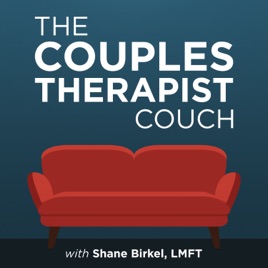
4.3
223
198
The Couples Therapist Couch
Shane Birkel
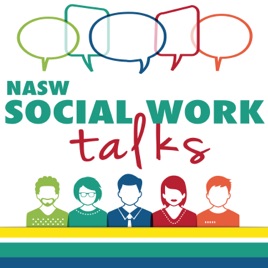
4.1
96
112
NASW Social Work Talks
National Association of Social Workers (NASW)
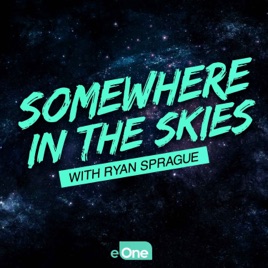
4.5
1101
373
Somewhere in the Skies
Ryan Sprague/ Entertainment One (eOne)

4.9
782
70
The Matt Walker Podcast
Dr. Matt Walker

4.9
99
55
The TBRI Podcast
Karyn Purvis Institute of Child Development
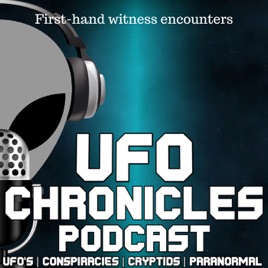
4.6
681
470
UFO Chronicles Podcast
Nik Hunter

4.7
562
457
ABA Inside Track
Robert Parry-Cruwys

4.9
1238
162
Behavior Bitches
Study Notes ABA
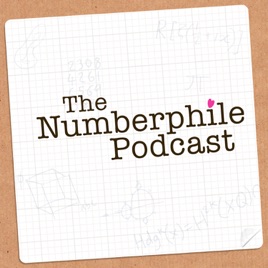
4.9
433
51
The Numberphile Podcast
Brady Haran
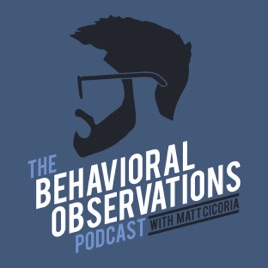
4.8
595
256
The Behavioral Observations Podcast with Matt Cicoria
Matt Cicoria



